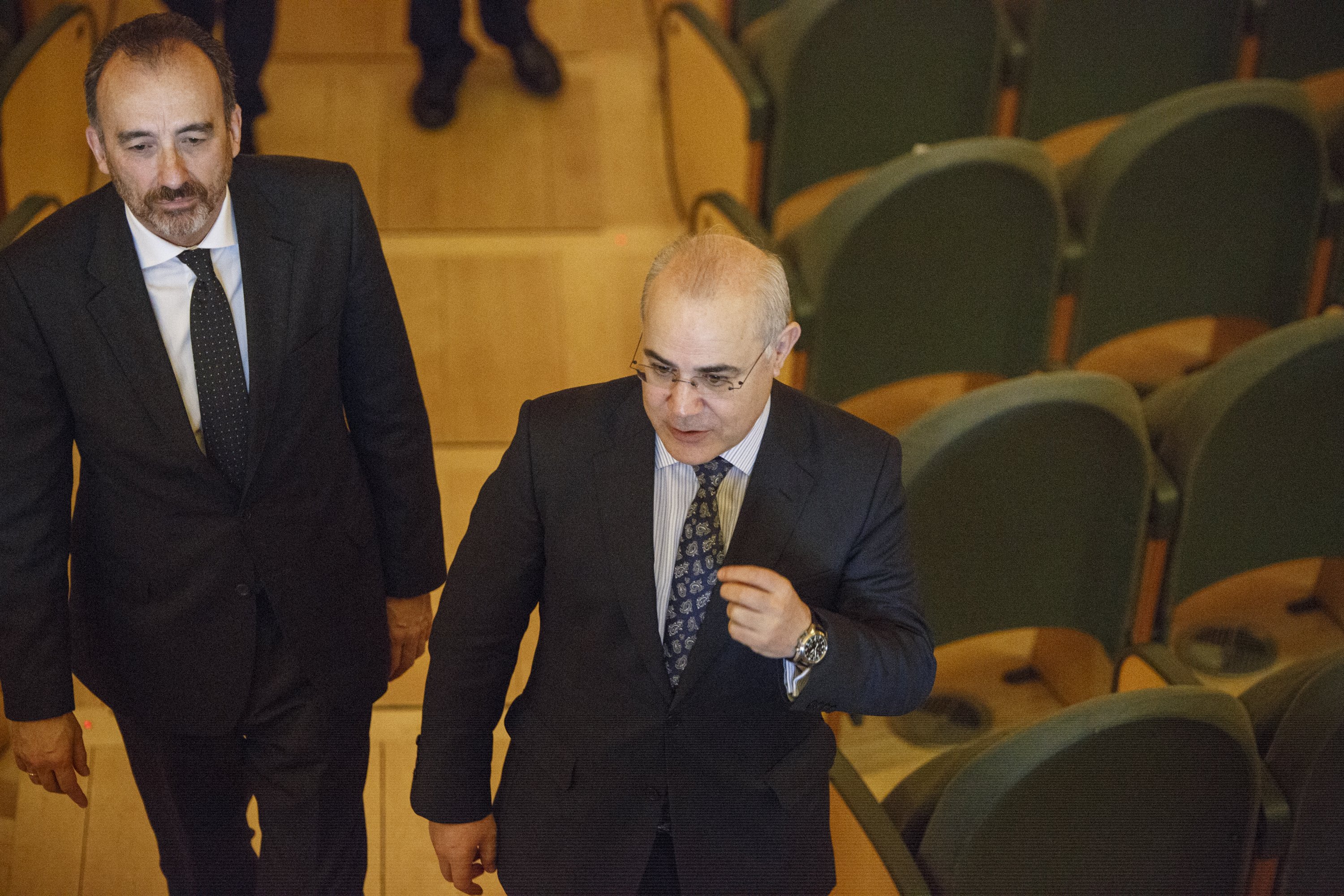Supreme Court judge Pablo Llarena has ruled that he does not see "any procedural reason" to prevent four of the Catalan independence leaders currently held on remand - Carme Forcadell, Dolors Bassa, Jordi Cuixart and Jordi Sànchez - from being transferred to prisons in Catalonia, as they have requested.
However, in his ruling, the judge notes that the decision is in the hands of Spain's penitentiary administration body. "The decision is subject to the penitentiary criteria that the state penitentiary administration considers applicable", the judge has written. Llarena is responding to these four cases because they are the first requests that have reached him from the penitentiary administration but it is expected that requests for the other five Catalan pro-independence leaders currently held in prison will reach him shortly.
If Llarena does not oppose the transfer it is because he considers the investigative part of the case - all that occurs prior to the actual courtroom trial - to be complete, even though he has not yet issued the concluding summary which will be his last act as investigating judge and will send the case to trial. Forcadell is requesting a transfer to the Barcelona women's prison, Bassa to the Girona women's prison, Sànchez to Quatre Camins prison near Barcelona and Cuixart to Brians II, also near Barcelona.
On Wednesday the Supreme Court received four documents from the prisons where these prisoners are currently held, Soto del Real and Alcalà-Meco, in which the centre directors asked if the judge saw any "impediment" to transferring the four pro-independence leaders as they had requested.
The transfer procedure
Five similar documents are still to be received from the penitentiary of Estremera, where the other five incarcerated Catalan politicians - Oriol Junqueras, Josep Rull, Jordi Turull, Joaquim Forn and Raül Romeva - are held. In the case of Junqueras and Romeva, the document was requested by their lawyers at the end of April. Rull and Turull have now requested it and Forn is due to do so on Thursday, according to their defence teams.
Once the penitentiary administration body has notified the investigating judge and been advised that he has no objection, an evaluation board at each penitentiary meets to consider the transfer. The Spanish government has now stated it will start the legal formalities of the transfer from the political prisoners in Catalan prisons and estimates that it take place in a question of “days”.
The transfer of the political prisoners to Catalan prisons has generated controversy in the Spanish government for the last few weeks. After contradictory statements, the answer about the authority for making such a transfer is clear: the penitentiary administration body is responsible to the Spanish interior ministry and as such to interior minister Fernando Grande-Marlaska. Judges in the case have no final say, even if they are investigating the case and have to call the prisoners to court frequently.

